HOW TO REGISTER
Search for ‘Land Tenure’ in USAID University.
OVERALL COURSE OBJECTIVE
This course will provide USG foreign assistance practitioners training that strengthens their knowledge and skills in understanding the relationships between land tenure and property rights (LTPR) and critical USG international development strategic priorities; identifying and addressing development challenges in their portfolios related to LTPR; and improving the effectiveness of Agency and USG programming.
BACKGROUND
Rights to land and resources are at the center of our most pressing development issues: economic growth, food security, conflict, urbanization, gender equality, climate change, and resilience. Secure land and property rights create incentives for investment, broad-based economic growth, and good stewardship of natural resources. Insecure property rights and weak land governance systems often provoke conflict and instability, which can trap communities, countries, and entire regions in a cycle of poverty.
This 1-week course is designed for USAID and USG international development professionals, who want to strengthen their knowledge and skills in addressing land tenure and property rights challenges.
This course provides participants with a solid understanding of the issues, theories, evidence, and best practices around land tenure, property rights, and effective international development programming.
PARTICIPANT LEARNING OBJECTIVES
By the end of the course the participants will be able to:
- Describe the importance of LTPR as a critical development issue and understand considerations for USG foreign assistance programming.
- Define common land sector terms and concepts and be able to explain the differences between formal and informal land systems.
- Describe the linkages between LTPR and conflict, economic growth, responsible land-based investment, food security, gender equality and women’s empowerment, and natural resource management in developing countries.
- Understand and describe best practices for applying LTPR in the context of USG foreign assistance programming and identify available resources, USAID-supported technologies, methodologies, and tools for LTPR.
COURSE OUTLINE
- Introduction to Land Tenure and Property Rights
- Property Rights and Economic Growth
- Land and Resource Tenure, NRM, and Biodiversity
- Introduction to Land Tenure and Geospatial Techonology
- Land, Property, and Conflict
- Land Rights, Gender Equality, and Women’s Empowerment
- Introduction to Land Administration
- Responsible Land-based Investment
- Land and Food Security
- USAID Land Tenure and Property Rights Technical Services, Resources, and Mechanisms
- Conclusion
SCENARIOS
This course will move through three real-world example scenario-based exercises to practice applying course learnings to improve USAID development programming and decision making.
PRESENTERS
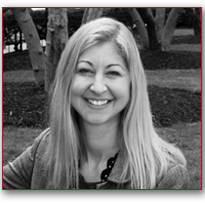 Sarah Lowery
Sarah Lowery
Economist and Public-Private Finance Specialist, USAID E3/Land and Urban Office
Module: Responsible Land Based Investment
Ms. Lowery leads work on integrated finance for sustainable land use and responsible private sector investment. She focuses on the link between secure land tenure and inclusive economic growth and leads econometric and financial analysis related to strengthened land tenure and access to finance. Ms. Lowery holds an MBA and a master’s degree in Environmental Management from Yale University.
Ms. Lowery brings over 12 years of experience at the intersection of business, finance, and the environment. Prior to joining USAID, Ms. Lowery managed the Public-Private Co-Finance Initiative at Forest Trends and has authored several papers and thought-pieces on climate finance innovations like REDD+ bonds and ways to utilize climate finance to unlock larger pools of capital-like domestic agricultural finance in the pursuit of conservation goals.
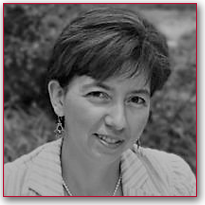 Ioana Bouvier
Ioana Bouvier
Senior Geospatial Analyst, USAID E3/Land and Urban Office
Module: Introduction to Land Tenure and Geospatial Techonology
Ms. Bouvier is the lead for E3/Land’s “fit-for-purpose” land technology applications and manages the Land-Potential Knowledge System, an inter-agency agreement with the USDA. She focuses on building capacity for geospatial analysis and sustainable technology solutions that advance land and resource governance, support resilient cities, and foster integrated development planning. Ms. Bouvier holds a master’s degree in Geographic Information Science for Development and Environment from Clark University, Worcester, MA and a bachelor’s degree in Geography and Environmental Science from University of Bucharest, Romania.
Ms. Bouvier has over 15 years of experience in developing geospatial analysis and technology solutions for international development programs. Prior to joining USAID, she served as a data science/analytic methods team lead at the National Geospatial-Intelligence Agency, where she developed methods for data analysis and visualization and briefed policymakers. Before joining the U.S. Government, Ms. Bouvier worked as a geospatial and international development specialist, providing technical support and training for numerous USAID-funded climate change, biodiversity, and natural resources management programs.
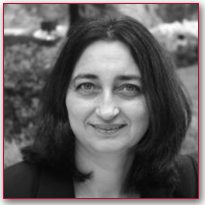 Silvia Petrova
Silvia Petrova
Geospatial Analyst, USAID E3/Land and Urban Office
Module: Land Rights, Gender Equality, and Women’s Empowerment
Ms. Petrova serves as E3/LU’s Geospatial Analyst and provides geospatial analytics and technology solutions assistance to missions, across the land and urban portfolio and cross-sectoral programs. She focuses on generating new evidence through the use of innovative geospatial and technology approaches to support land and resource governance, sustainable urban services, and cross-sectoral programming for climate change, biodiversity, and food security initiatives. She also serves as E3/LU’s Gender Adviser on gender-sensitive design, operation, and programming of land tenure-related activities. As such, she focuses on the link between the land tenure and property rights and gender equality and women empowerment across land tenure portfolio. Ms. Petrova holds a master’s degree in Geospatial Information Science for Development and Environment from Clark University, Worcester, MA and both bachelor’s and master’s degrees in Computer Science from Technical University, Sofia, Bulgaria.
Prior to joining USAID, Ms. Petrova worked at Winrock International where she applied remotely sensed and geospatial technology to international development projects focusing primarily on agriculture, forestry, and climate change sectors. She brings experience in analyzing land cover and land use dynamics, climate mitigation and adaptation, forest carbon measurements and assessment, training and capacity building, and project implementation.
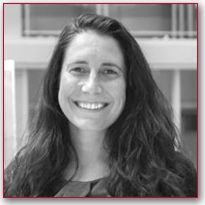 Janet Lawson
Janet Lawson
Natural Resources Officer, USAID E3/Land and Urban Office
Module: Land and Food Security
Ms. Lawson supports technical programming and policy development related to land tenure and resource governance. Ms. Lawson holds a master’s degree in Environmental Science from Yale’s School of Forestry and Environmental Studies and a bachelor’s degree in Foreign Service from Georgetown University.
Prior to joining E3/Land, Ms. Lawson served in USAID/Guatemala’s Economic Growth Office as the Agriculture Team Leader and in USAID/Cambodia’s Office of Food Security and Environment.
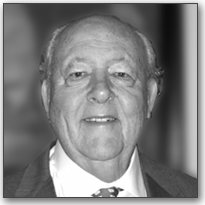 John Bruce
John Bruce
Independent Consultant
Module: Land, Property, and Conflict
Mr. Bruce is a scholar-practitioner who has consulted and researched land policy and law in over fifty countries, primarily in Africa and Asia. He is a former Director of the University of Wisconsin-Madison’s Land Tenure Center and served as a Senior Counsel (Land Law) and Senior Land Tenure Specialist at the World Bank. Mr. Bruce holds a bachelor’s degree in International Relations from Lafayette College, a JD from Columbia University Law School, and an SJD from the University of Wisconsin-Madison School of Law.
In addition, he recently returned from three years in Beijing, where he taught a graduate seminar on land tenure issues at Renmin University. He has worked in several conflict-affected and post-conflict countries (Ethiopia, Rwanda, Southern Sudan, Yemen, Mozambique, Syria, Cambodia, Palestine, South Africa, and most recently, Liberia).
 Benjamin Linkow
Benjamin Linkow
Senior Research and Evaluation Advisor, Landesa
Module: Property Rights and Economic Growth
Dr. Linkow is a Senior Research and Evaluation Advisor at Landesa. An applied development microeconomist with a focus on agriculture and rural land issues, his expertise includes design and implementation of impact and program evaluation projects, including the application of advanced econometric and quantitative evaluation techniques to data collected in developing country contexts.
Prior to joining Landesa, Dr. Linkow has held positions at NORC at the University of Chicago, USAID, the Millennium Challenge Corporation and on the faculty at Miami University of Ohio.
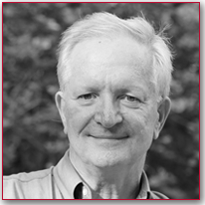 Steven Lawry
Steven Lawry
Director, CIFOR’s Equity, Gender and Tenure research program
Module: Land and Resource Tenure, NRM, and Biodiversity
Dr. Lawry is Director of CIFOR’s Equity, Gender and Tenure research program, leading a team of nine scientists and research associates based at CIFOR offices in Asia, Africa, and Latin America. Dr. Lawry has published studies and scholarly articles on the social and ecological effects of forest rights devolution; the impacts of land rights formalization on agricultural investment and productivity; and tenure factors affecting adoption of agroforestry technologies in West Africa, among other topics. He received a Ph.D. from the Nelson Institute for Environmental Studies at the University of Wisconsin-Madison in 1988. The same year he joined the research staff of UW-Madison’s Land Tenure Center (LTC) and became LTC’s Associate Director in charge of Africa programs in 1990.
Prior to joining CIFOR, Dr. Lawry held senior positions in the Ford Foundation from 1992 to 2006, including head of the Foundation’s Office for the Middle East and North Africa in Cairo from 1997 to 2001. He was president of Antioch College, in Yellow Springs, Ohio, from 2006 to 2007. He was a Senior Research Fellow at the Harvard Kennedy School’s Hauser Center for Nonprofit Organizations from 2008 to 2013. On leave from the Kennedy School, he headed the USAID-funded Sudan Property Rights Program in 2010 and 2011, based in Juba, assisting the Government of South Sudan develop a national land policy. Dr. Lawry served as Global Practice Leader for Land Tenure and Property Rights at DAI, a Washington-based consulting group, from 2011 to 2014.
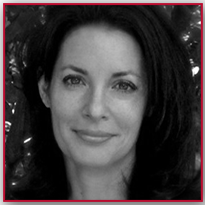 Karol Boudreaux
Karol Boudreaux
Land Tenure and Resource Practice Lead, The Cloudburst Group
Module: Introduction to Land Tenure and Property Rights & Introduction to Land Administration
Ms. Boudreaux is The Cloudburst Group’s Land Tenure and Resource Rights Practice Lead. She provides technical guidance to staff in the Land Tenure and Resource Management team, provides oversight for the innovative Mobile Applications to Secure Tenure project, and is closely involved with The Cloudburst Group’s communications specialists to craft a variety of tools and other products that help explain why secure land and resource rights are so important for women and men around the world.
Ms. Boudreaux is a lawyer and land tenure and resource rights expert with two decades of experience in the field and as a researcher. Throughout her career, she has supported improvements to the land tenure and resource rights of people and communities around the world, with a strong focus on sub-Saharan Africa. Ms. Boudreaux is lead author of USAID’s Operational Guidelines for Responsible Land-Based Investments, a new tool for private sectors investors in the commercial agriculture sector.
Ms. Boudreaux served as USAID’s Africa Land Tenure Specialist from 2011-2013 and routinely conducted country-level land tenure assessments, provided specific policy guidance on land and natural resource management programming, and supported the U.S. Government’s negotiating efforts in developing the Voluntary Guidelines on the Responsible Governance of Tenure of Land, Fisheries and Forests.
For more information, contact Jeremy Green, E3 Land and Urban: jegreen@usaid.gov


